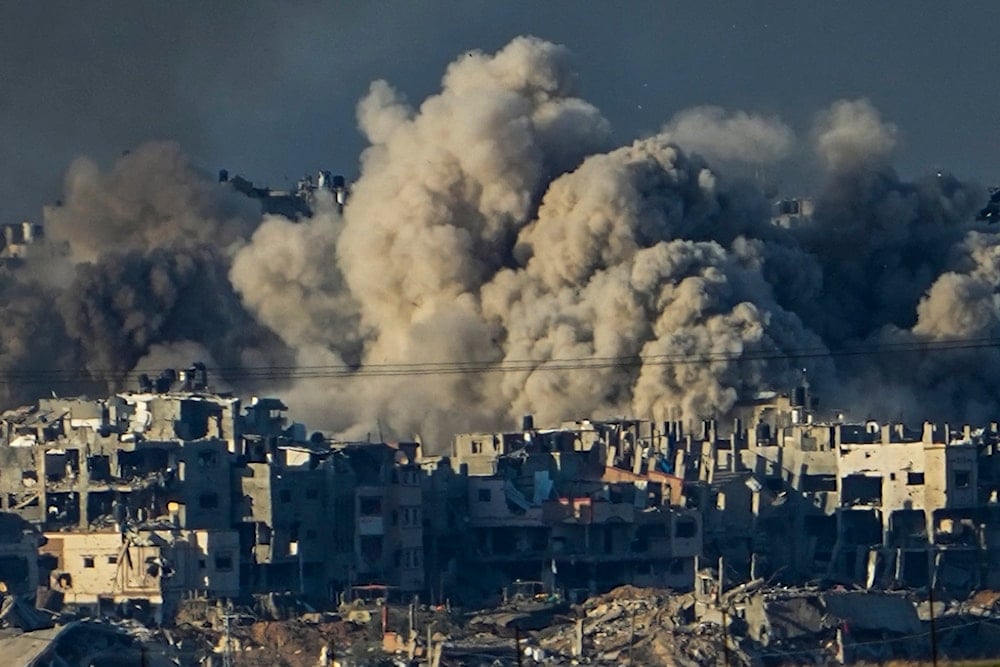Washpo: Killing of USAID contractor in Gaza fuels US internal protest
Hani Jnena, a contractor for the United States Agency for International Development, was killed on November 5 when an Israeli bomb targeted Gaza City's Al Sabra area.
-

Smoke rises following an Israeli bombardment in the Gaza Strip, as seen from southern occupied Palestine, Saturday, Dec. 16, 2023 (AP Photo)
According to a statement sent to The Washington Post by his employer, Hani Jnena, a contractor for the United States Agency for International Development, was killed on November 5 when an Israeli bomb targeted Gaza City's Al Sabra area.
Before his death, Jnena expressed to his colleagues in the West Bank that his daughters were "terrified" and he was trying to keep them calm before they were killed.
Jnena is one of the numerous humanitarian workers killed during the war on Gaza, pressuring Biden to take a tougher stance on "Israel," including restricting the billions in military assistance the occupation receives annually.
Last month, an open letter was signed by over a thousand employees USAID, in addition to three internal memos addressed to Secretary of State Antony J. Blinken, signed by numerous State Department employees.
The USAID letter clarifies that the signatories are anonymous because of "concern for our personal safety and risk of potentially losing our jobs" and is the same as the one that was sent in on Tuesday. The identities of persons who signed the State Department dissent cables must be made public, but those cables have not been released publicly.
One anonymous USAID official told the WashPo “We’ve seen far too much inaction from the White House and USAID leadership on this issue."
Jeremy Konyndyk, a former Biden administration official who worked at USAID under President Barack Obama called the US concern over civilian deaths "purely rhetorical," adding that “Beyond expressing concern and expressing regret, that’s where it stops.”
A White House spokesman defended the support for "Israel" that has been extended by the White House and expressed that Washington made its position clear to the occupation regarding the death of humanitarian workers.
However, the spokesperson admitted that "Israel" had launched airstrikes inside the ostensibly safer zones designated by this approach, generating disruption and uncertainty among humanitarian workers.
The heads of the world's biggest aid groups including Oxfam America, Mercy Corps, and Save the Children recently co-wrote a paper in which they compared the situation in Gaza to no previous battle or natural disaster they had witnessed.
The piece in the New York Times details how the Israeli strikes have made their jobs "impossible," detailing how the withholding of "Water, fuel, food, and other basic goods has created an enormous scale of need that aid alone cannot offset.”
Aside from criticism aimed at the White House, numerous USAID workers voiced displeasure that the assassination of Jnena was not publicly or in internal staff-wide communication recognized by the agency.
Samantha Power, the administrator of USAID, had been aware of his death since at least late November when she addressed a letter to the CEO of the USAID contractor he worked for, a copy of which The Post received.
When asked if Power brought up Jnena's killing with Israeli officials, USAID did not respond, but Jennings reiterated that Israeli government officials are reminded in conversations that the protection of humanitarian workers is crucial.

 3 Min Read
3 Min Read








